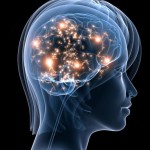Anyone with a goal knows that to achieve results, you have to be willing to work hard. However, just as importantly, you also need the know-how to work smart. Reaching your goals requires a plan with concrete steps, as well as positive habits that can get you where you want to go. Individuals who struggle with ADD, ADHD, and similar conditions are well-acquainted with the frustrations of getting organized enough to see the success they so eagerly desire. Organizational expert and author Judith Kolberg works extensively in this field and has concluded that an enormous hurdle for many of us is a struggle with perfectionism. That is, because we are so preoccupied with being perfectly organized in the future, we miss out on easier, more immediate steps we can take to become a little bit more organized right now. Fortunately, there are in fact many small changes that people with ADD, ADHD, and a wide variety of difficult learning disorders can make that will improve their lives. In fact, they tips are often helpful for everyone to some extent. As you adopt more and more of these best practices, you will find yourself enjoying all the benefits of a more organized and effective life, including less clutter and greater peace of mind.
Your Timer is a Treasure
Everyone can struggle with time management, but this pitfall can become exponentially more extreme for people with ADD or ADHD. Spending hours or even days in agony as you try to make a decision others in your situation have made in minutes puts you at a serious disadvantage. The longer you draw out a decision making process, the more that task is likely to overlap with the large number of other things you have to do with your time. Before you know it, deadlines of all sorts are approaching in a jumbled mess and you are liable to find yourself stressed, unprepared, and unhappy. This goes for completing all sorts of activities, including homework or projects at work. Give yourself a time limit to make a choice or complete the work, and stick by it. Set reminders on your phone or computer, ask someone reliable to give you a call at a specific time to ask what you have decided, or simply write it down in your calendar. The important thing is that you stick to this deadline that you have chosen. A very real and tangible endpoint to your dilemma, that you have set for yourself in a manner which comfortably avoids any external pressures or consequences, can empower you enough to avoid distractions. Do not be discouraged if this is difficult at first! The more practice you have at holding yourself accountable, the better you will get at it.
Keep It Simple
When it is naturally a challenge to hold your attention in one place, the importance of developing physical expressions of where your focus should be cannot be understated. However, it is also critical not to set yourself up for failure. Everyone would like to be able to accomplish everything in one day, but that is just not always possible. This is why prioritizing is such a critical skillset. An excellent habit is to take an index card and write five tasks down on it at most – any other things you would like to be able to accomplish can be jotted down on the back. However, write those five main things down in big letters and use that as a reference throughout the day. Once you have finished all five things, you can throw out that card and create a new one. This card is an easy, portable way for you to be sure you are always aware of what you should be doing, ensuring you get more down. Additionally, the sensation of crossing things off the list and eventually throwing the card out altogether will decrease your sense of frustrations and make you feel good about your day. The better you feel, the more you are likely to continue doing.
Call For Backup
One of the best things you can do for a happy and healthy life is to surround yourself with supportive, caring people. A person working with ADD, ADHD, or a similar disorder which can put a strain on your capacity to focus, learn, or stay on task, will inevitably run into situations in which they need help. That is alright. Everyone, regardless of mental condition, encounters such realities. This is why a great network of friends and family is so important. However, you need to be willing to leverage their willing support and ask for help. When it comes time to accomplish a task that you know is usually far outside something you are willing to do independently, it is time to request a little supervision and support. As a friend or family member to sit with you while to tackle the task, whether it be a particularly time-intensive academic endeavor, a mundane chore like balancing a checkbook, or something else entirely. Have them sit by you and quietly do their own unobtrusive work. He or she can periodically check in with you, while otherwise providing an encouraging atmosphere by setting a standard of quiet productivity.
Living with ADD, ADHD, or any other learning disorder can be a challenge, but it is never an insurmountable one. Give yourself permission to make mistakes and do not get discouraged if it takes time to establish a routine that works for you. Every day is an opportunity for you to discover and more fully adopt a way of living that makes you feel productive, focused, and happy.
